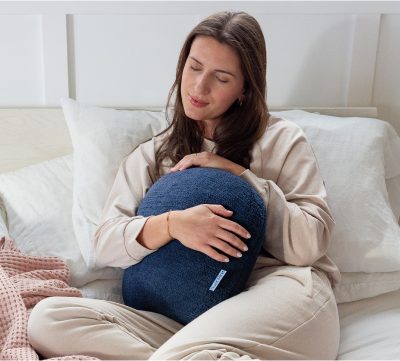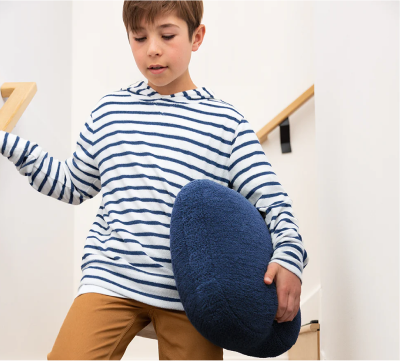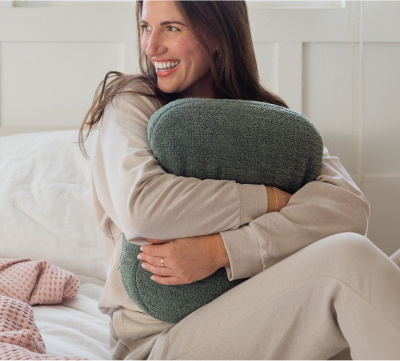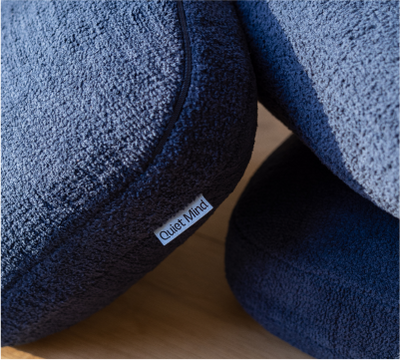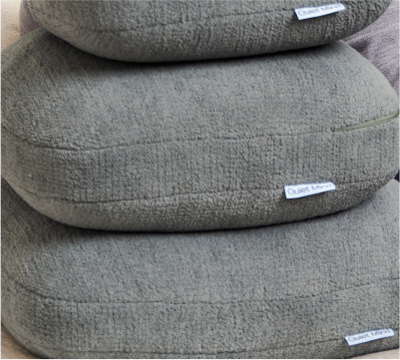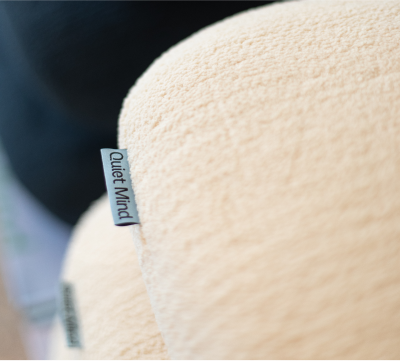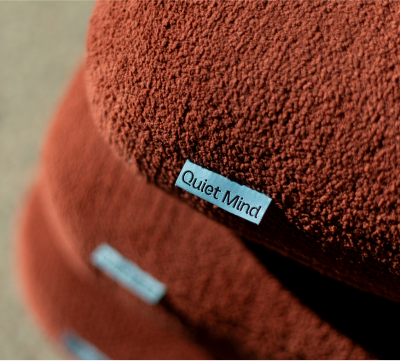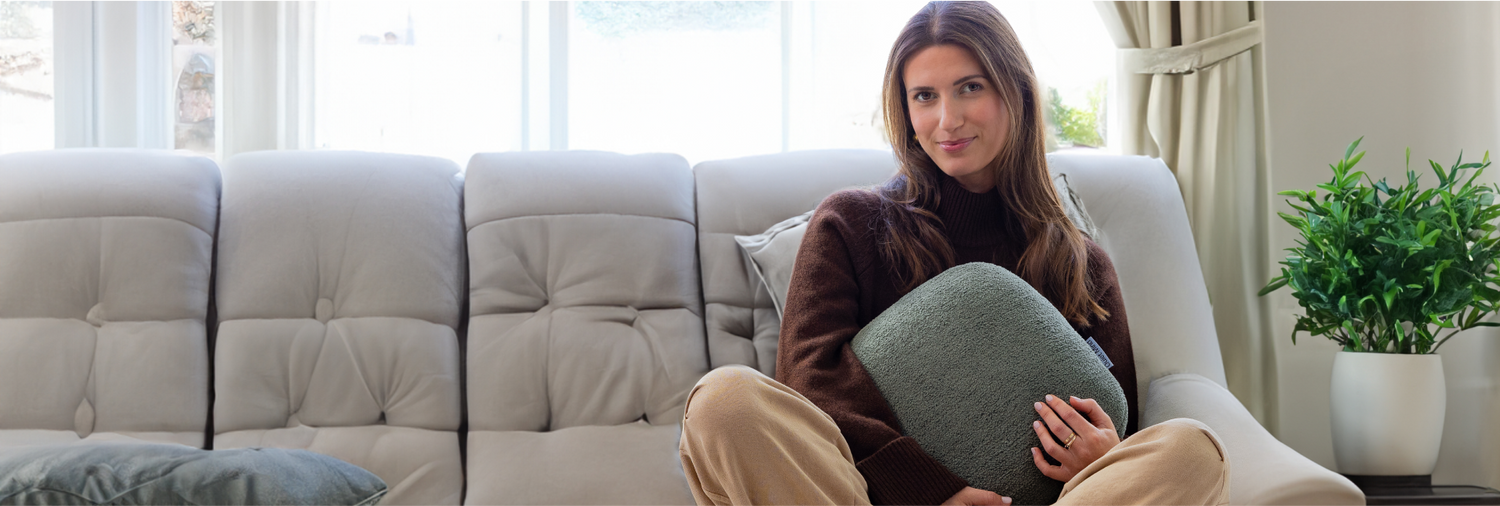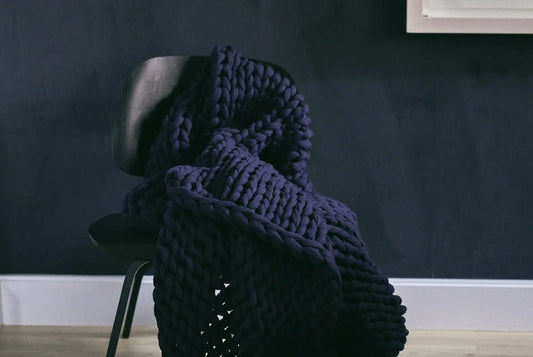Dogs spend much of their lives asleep, but this isn’t laziness. It’s biology, instinct, and recovery at work. Whether it’s a puppy snoozing through growth spurts or a senior dog resting more often, sleep is how dogs reset, recharge, and feel safe in their world.
Still, many dog guardians wonder about how much sleep dogs really need. And at what point should changes in sleep patterns become a concern?
This guide explores how the amount of sleep a dog needs can vary by age, breed, routine, health, and how you can support restful, restorative sleep at every life stage.
Understanding Normal Dog Sleep Behavior
Sleep is vital for your dog’s physical recovery and emotional regulation. But unlike humans, dogs approach sleep in smaller, more frequent doses.
Why Dogs Sleep More Than Humans
Dogs are biologically wired to conserve energy. In the wild, they would rest between bursts of activity like hunting or traveling. That instinct remains even in calm, modern homes. Dogs tend to nap often because their brains and bodies still expect recovery time.
- Most adult dogs require 12–14 hours of sleep each day.
- Some breeds and life stages may push that closer to 20 hours daily.
This may seem like a lot, but for dogs, it’s a natural rhythm of restoration; and a powerful reminder of how essential rest truly is for humans to get better sleep, too.
The Canine Sleep Cycle Explained
Dogs move through stages of sleep similar to humans, including:
- Light sleep: Ears twitching, easily roused.
- Deep sleep: Physical restoration happens here.
- REM sleep: Associated with dreaming and memory processing.
However, dogs cycle through these sleep stages more quickly and spend less total time in REM. Their alert nature means they wake easily from environmental cues like sound or movement.
Here's how dog sleep compares to human sleep:
|
Sleep Characteristics |
Dogs |
Humans |
|
Sleep Pattern |
Polyphasic (short naps) |
Monophasic (overnight sleep) |
|
Average Duration |
12–14 hours/day |
7–9 hours/night |
|
REM Sleep Role |
Memory, learning, emotion |
Cognition, consolidation |
Average Hours of Sleep by Dog Age
The sleep a dog needs changes over time. From energetic puppyhood to the slower pace of senior years, rest patterns evolve.
Puppy Sleep Needs
Puppies often need more sleep, like 18 to 20 hours per day. This high level of sleep supports:
- Rapid brain development
- Bone and muscle growth
- Immune system maturation
Puppies tire quickly from short bursts of play and stimulation. They may nap frequently, sometimes just minutes after a walk, a meal, or a learning activity. Their naps may seem unpredictable but serve a deeply important biological purpose.
Adult Dog Sleep Needs
Most adult dogs average 12 to 14 hours of sleep per day, though some breeds or individuals may need slightly more or less.
Several factors influence adult dog sleep:
- Breed size and type: Larger breeds and lower-energy dogs tend to require more sleep.
- Daily activity: Dogs who get appropriate exercise and enrichment rest more deeply.
- Routine: Dogs thrive on predictable patterns for feeding, play, and bedtime.
- Role: Working dogs, such as service animals or herding breeds, may have structured rest schedules that differ from typical household pets.
It’s important to note that dogs are excellent at self-regulating rest when their environment supports calm. If they feel safe and mentally fulfilled, their sleep will often balance itself out.
Sleep in Senior Dogs
Senior dogs often begin sleeping more again, 16 to 18 hours a day is not unusual. Several reasons contribute to this shift:
- Reduced stamina and energy.
- Physical discomfort (e.g., arthritis, stiffness).
- Cognitive changes or early signs of Canine Cognitive Dysfunction (doggy dementia).
- Sensory decline, which can disrupt wake/sleep cues.
Older dogs may also nap more during the day but become restless at night, a pattern that mirrors sundowning in older humans. Creating a calming, low-stimulation evening routine can help anchor sleep.
|
Life Stage |
Average Hours of Sleep |
Common Influences |
|
Puppy |
18–20 hours |
Growth, play, brain development |
|
Adult Dog |
12–14 hours |
Breed, energy output, environmental factors |
|
Senior Dog |
16–18+ hours |
Health issues, pain, cognitive changes |
Breed Differences: How Long Do Dogs Sleep Based on Breed?
Sleep habits aren’t one-size-fits-all. Some dogs sleep longer because their bodies demand it. Others may rest lightly but frequently.
Sleep Patterns in Large Dog Breeds
Larger dogs like Great Danes, Bernese Mountain Dogs, and Mastiffs typically require more sleep than smaller breeds. Their greater body mass and slower metabolism mean more rest is needed for recovery and joint support.
These dogs often nap up to 18 hours a day, particularly after moderate exercise. They may appear lazy, but it’s their natural rhythm, not a sign of low health.
Smaller Dogs and Their Sleep Schedules
Small dogs such as Chihuahuas or Yorkshire Terriers may sleep less overall, but their sleep is often more fragmented. These dogs are often more alert and sensitive to noise, light, and household changes.
They may nap in short bursts, frequently waking and resettling. Anxiety, lack of exercise, or overstimulation can also shorten sleep windows.
Considerations for Working Dogs
Working dogs, such as police K9s, guide dogs, or sheepdogs, may adapt their sleep to human-led routines. Their sleep may be shorter during active duty hours but can become deeper and more efficient due to mental and physical fatigue.
After intense work, dogs tend to crash into longer recovery periods. It's important that these dogs get protected downtime after demanding tasks.
Breed is only one piece of the puzzle. Always observe your individual dog’s cues, sleep quantity, restlessness, or changes in mood may offer better insight than averages alone.
What Affects How Much Dogs Sleep?
Sleep is a mirror of many things: energy levels, environment, stress, nutrition, and more. If your dog’s sleep pattern suddenly changes, it may reflect deeper imbalances, physical or emotional.
Physical Activity and Exercise Levels
A well-exercised dog generally sleeps more soundly. Physical movement helps discharge excess energy and reduces restlessness.
|
Dog Type |
Daily Exercise Needs |
Impact on Sleep |
|
High-energy (e.g. Border Collie) |
1–2 hours |
Deep, sustained rest |
|
Moderate-energy (e.g. Labrador) |
45–60 minutes |
Balanced nap and recovery cycles |
|
Low-energy (e.g. Bulldog) |
15–30 minutes |
Frequent, light napping |
Too little stimulation can lead to boredom and over-sleeping. Too much can cause difficulty settling down. It’s all about balance.
Diet, Health, and Sleep Quality
What your dog eats, and how their body processes it, can shape sleep quality. Sleep may be disrupted by:
- Blood sugar swings from poor nutrition.
- Chronic inflammation or digestive issues.
- Skin irritation or food sensitivities.
- Discomfort from hidden pain (especially in seniors).
Some dogs may also experience sleep apnea, particularly brachycephalic (short-nosed) breeds like Bulldogs and Pugs. This condition disrupts breathing during rest and may cause frequent waking or excessive daytime sleepiness.
Environmental Factors and Routine
Dogs tend to thrive when they know what to expect. A calm, predictable environment supports not only behavior, but also sleep.
Supportive sleep environments include:
- A soft, well-supported bed in a quiet, familiar space.
- Steady room temperature (not too warm or too cold).
- Gentle sensory cues, like a fan or calming sound machine.
- Comfort items like Quiet Mind’s scented weighted pillow, designed to gently mimic the feeling of being swaddled, can also help anxious or restless dogs settle more easily at night.
Even small disruptions; such as moving to a new home, adding a new pet, or shifting feeding times, can throw off the amount of sleep your dog gets each day.
Is Your Dog Sleeping Too Much or Too Little?
Every dog has its rhythm. What matters most is noticing when that rhythm changes.
Warning Signs to Watch For
If your dog’s sleep habits shift suddenly or seem extreme, it may signal an issue:
- Trouble settling down or pacing at night
- Noticeable changes in mood or alertness
- Refusal to eat or drink normally
- Unusual breathing during rest
|
Symptom |
Possible Causes |
|
Restlessness |
Anxiety, discomfort, environmental change |
|
Reduced appetite |
Illness, stress, digestive issues |
|
Excessive daytime sleep |
Pain, boredom, depression |
|
Labored breathing during rest |
Allergies, respiratory conditions |
When to Consult a Veterinarian
Patterns matter. If your dog is sleeping far more or far less than their usual, and it’s paired with physical or behavioral changes, speak with your vet. They’ll assess whether underlying health concerns may be affecting rest.
Keep a log of:
- Sleep durations and times.
- Behavioral shifts during waking hours.
- Any new routines or food changes.
This helps your vet assess the full picture.
Tips to Improve Your Dog’s Sleep Routine
Sometimes, small adjustments create big shifts in your dog’s sleep.
Creating a Comfortable Sleep Environment
Choose a sleep setup that invites rest, not just physically, but emotionally:
- A supportive dog bed in a quiet, familiar corner.
- Room temperature that’s neither too warm nor too cool.
- Soft ambient noise (a fan or gentle sound machine) to mask disturbances.
|
Bed Type |
Support Level |
Ideal For |
|
Memory Foam |
High |
Seniors, dogs with joint pain |
|
Orthopedic |
High |
Large or aging breeds |
|
Standard Cushion |
Medium |
Puppies, adaptable adult dogs |
Managing Nighttime Disruptions
If your dog wakes often at night, gently observe and adjust:
- Use calming tools like lavender-infused sprays or white noise (unlike humans who can use lavender for sleep, directly in oils, teas, or diffusers)
- Try a predictable wind-down routine before bed.
- Address medical discomfort with your vet.
Summary: How Much Sleep Is Normal for Dogs
The amount of sleep dogs need is highly individual, but shaped by age, breed, and daily life.
|
Life Stage |
Average Sleep Hours |
|
Puppies |
18–20 hours/day |
|
Adult Dogs |
12–14 hours/day |
|
Senior Dogs |
16–18 hours/day |
Some dogs, such as giant breeds or those recovering from illness, may require more sleep. Others may sleep less if they’re anxious, under-stimulated, or exposed to loud or chaotic settings.
Rather than aiming for a perfect number, notice your dog’s sleep rhythm; what’s normal for them. Disruptions, not duration alone, are often the best signal that something needs support.
Final Thoughts on How Much Sleep Dogs Need
Dogs don’t just rest, they restore. Behind each nap is a quiet act of recovery, learning, and healing.
By creating a calm environment, honoring routine, and staying curious about changes, you help your dog feel safe in their rest. And if something shifts, you’ll be one of the first to know.
Because a well-rested dog isn’t just happier. They’re healthier.
About Quiet Mind
At Quiet Mind, we know that restful sleep begins with a sense of safety, in the body, in the environment, and in the moment. For dogs, safety isn’t taught. It’s felt. Our calming tools are designed to support those small, sensory shifts that make a big difference. A soft mist in the air. The steady pressure of a body wrap.
Looking for deeper grounding? Our signature weighted pillows offer soothing, evenly distributed pressure that many dogs find comforting, especially in overstimulating environments or during transitions.
Whether your dog is winding down from a busy day or adjusting to change, Quiet Mind offers quiet support to help them settle, safely and naturally.
Frequently Asked Questions
How many hours a day do dogs sleep?
Most dogs sleep 12 to 14 hours daily. Puppies and seniors may sleep even more, depending on their age and physical conditions.
Why do dogs sleep so much?
Sleep supports recovery, memory, and emotional balance. Dogs nap frequently to conserve energy and process stimulation.
Do different breeds of dogs sleep differently?
Yes. Large breeds often sleep more, while high-energy breeds need deep rest after active periods. But individual needs vary.
How much sleep do puppies need?
Puppies sleep 18–20 hours per day. Their growth and development require extensive rest.
How can I help my dog get a good night's sleep?
Create a quiet, supportive sleep space. Limit noise, use consistent routines, and offer calming sensory cues.
